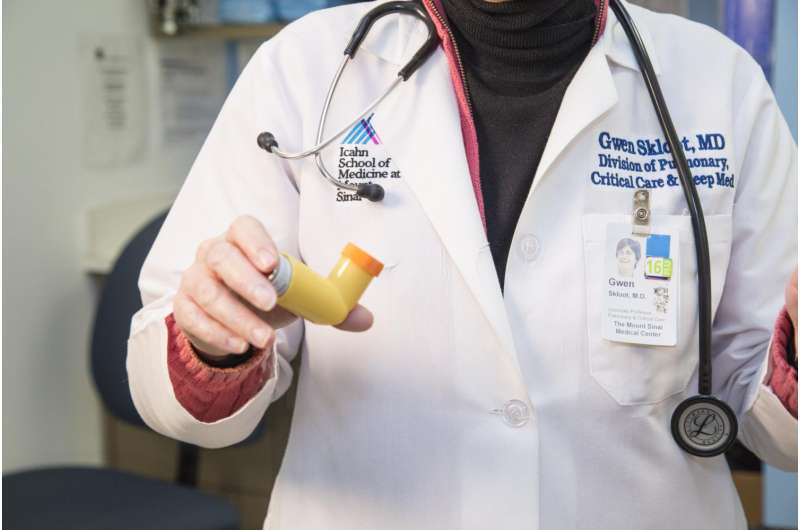Novel gene therapy shows potential for lung repair in asthma

A new study has demonstrated a way to deliver a nanoparticle-based gene therapy, in order to repair lungs damaged by chronic allergic asthma and to reduce inflammation that causes asthma attacks. The potential therapy, tested in mice, may hold promise for asthma patients whose disease is not controlled by the most commonly used treatments. The study was presented at the ATS 2016 International Conference.
"We found that a single dose of highly compacted DNA nanoparticle thymulin gene therapy effectively reduces the inflammatory and remodeling process in asthmatic lungs," said lead author Adriana Lopes da Silva, PhD, from the Federal University of Rio de Janeiro, Brazil. "This is especially important because some patients do not benefit from long-lasting beta2-agonists and inhaled corticosteroids, which are the most widely used asthma therapies."
In asthma, airways become inflamed, resulting in narrowing of these airways and debilitating symptoms that include coughing, wheezing, shortness of breath and chest tightness. Asthma and other respiratory diseases also cause changes in the large and small airways of the lungs, known as "remodeling." Remodeling is believed to be caused by long-term inflammation, and leads to worsening of patients' asthma.
"Alternative therapeutic approaches that can both reduce inflammatory and remodeling processes by overexpressing or inhibiting specific genes in the asthma inflammatory cascade, in different types of asthma and without leading to immunosuppression, are sorely needed," Dr. da Silva said.
Dr. da Silva's group recently found that the insertion of a thymulin analog gene into a plasmid (a type of DNA fragment) by using DNA nanoparticles enhances airway repair and improves lung function in a mouse model of allergic asthma. The current study looked at how to deliver this molecule in order to improve its therapeutic effects.
In the new study, Dr. da Silva and colleagues formulated and characterized the thymulin nanoparticles. Laboratory-bred female mice were then randomly assigned across four groups (n=8/group). In the OVA group, mice were immunized and challenged with ovalbumin, a type of protein found in egg whites that is a common allergen. Control mice (CTRL) received saline under the same protocol. Twenty-four hours after the last challenge, animals received injections of saline (CTRL and OVA-SAL groups), one dose of DNA nanoparticles, or three doses of DNA nanoparticles. After 20 days, the researchers examined the animals' lungs.
The researchers found that a single dose of thymulin gene therapy, which was delivered using a novel biodegradable platform, was effective at reducing lung inflammation and improving airway structure and function.
"We now need to better understand the mechanisms behind this therapeutic strategy," said Dr. da Silva. "We hope to then start Phase I trials in the near future."
More information: Abstract 7875: Thymulin Gene Therapy Delivered by a New Biodegradable DNA Nanoparticle in Experimental Chronic Allergic Asthma

















